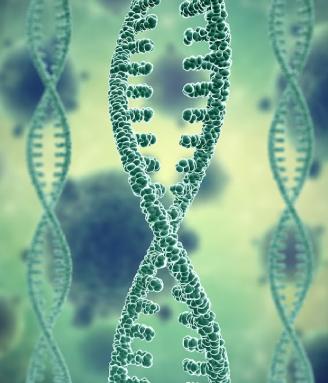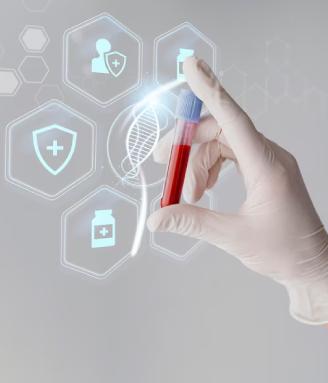Thalassemia Treatment
Thalassemia Treatment in Kolkata
Thalassemia is a genetic blood disorder characterized by the body’s inability to produce enough hemoglobin, a protein in red blood cells that carries oxygen throughout the body. The severity of thalassemia depends on the specific type and the inheritance pattern, and it can range from mild to life-threatening. Visit Aastha Clinic today to consult the best thalassemia doctors in Newtown, Kolkata, for early diagnosis.
Symptoms of Thalassemia
The most common symptoms associated with thalassemia are as follows:
- Fatigue and Weakness
- Paleness or Jaundice (Yellowing of Skin and Eyes)
- Bone Deformities
- Delayed Growth
- Frequent Infections
- Shortness of Breath
- Dark Urine
Types of Thalassemia and Their Causes
There are two main types of thalassemia, each caused by mutations in the genes that produce alpha-globin or beta-globin chains of hemoglobin.Alpha Thalassemia
Caused by mutations or deletions in the genes that produce the alpha-globin chains of hemoglobin. The alpha-globin gene is located on chromosome 16, and normally, a person has two copies of this gene on each chromosome.Beta Thalassemia
Caused by mutations in the genes that produce the beta-globin chains of hemoglobin, located on chromosome 11. Severity depends on whether one or both genes are affected.Causes of Thalassemia
The causes of thalassemia are listed below:
01. Genetic Inheritance
Thalassemia is inherited in an autosomal recessive manner, which means that for a person to develop the disorder, they must inherit two mutated genes—one from each parent. If only one mutated gene is inherited, the person will be a carrier (often called a thalassemia trait) and usually will not show symptoms of the disease.02. Environmental and Other Factors
While the primary cause of thalassemia is genetic, environmental factors and infections can sometimes worsen the symptoms or complications in people who already have the disease. However, these factors do not directly cause thalassemia.
Diagnosis of Thalassemia
The main methods used to diagnose thalassemia are as follows:

01. Complete Blood Count (CBC)
A Complete Blood Count (CBC) is typically the first test conducted when thalassemia is suspected. This test measures various components of the blood, including red blood cells, hemoglobin levels, and the size of the red blood cells.02. Hemoglobin Electrophoresis
Once a CBC shows signs of anemia, a hemoglobin electrophoresis test is performed to check for abnormal forms of hemoglobin.03. Iron Studies
Since thalassemia can sometimes present with symptoms similar to iron deficiency anemia, iron studies are often conducted to differentiate between the two.04. Genetic Testing
Genetic testing can confirm the presence of specific mutations in the genes responsible for thalassemia. It is especially helpful in families with a history of thalassemia, as it can guide family planning decisions.
Reach out to our thalassemia clinic in Newtown, Kolkata, for these tests.

Treatments for Thalassemia
The main treatments for thalassemia include the following:Blood Transfusions
One of the most common treatments for severe thalassemia is regular blood transfusions. These transfusions help to maintain adequate levels of red blood cells.Iron Chelation Therapy
This therapy uses medications that bind to excess iron in the body and help eliminate it through the urine or stool.Folic Acid Supplementation
In individuals with thalassemia, particularly those who require blood transfusions, folic acid supplementation is often recommended to help promote the production of healthy red blood cells and prevent further anemia.Book An Appointment
Bone Marrow or Stem Cell Transplant
This procedure involves replacing the patient’s defective bone marrow (which produces the abnormal blood cells) with healthy bone marrow from a compatible donor, usually a sibling. If you are suffering from this condition and require treatment, you may book a consultation at our clinic.Frequently Asked Questions
What is the life expectancy of someone with thalassemia?
Life expectancy depends on the severity of the disease, the effectiveness of treatment (especially iron chelation), and the presence of any complications.
Can thalassemia be prevented?
Since thalassemia is inherited, it cannot be prevented. However, genetic counseling is available for families with a history of the disease to understand the risk of passing it on to future generations. Prenatal testing can also be done to detect thalassemia in the fetus.
What is the difference between thalassemia minor and thalassemia major?
Thalassemia minor (also called the thalassemia trait) refers to carriers who have one normal gene and one mutated gene. They usually do not show symptoms or have only mild anemia.
Thalassemia major occurs when a person inherits two mutated genes, resulting in severe anemia and requiring regular blood transfusions.
Can someone with thalassemia have children?
Yes, individuals with thalassemia can have children. Genetic counseling and prenatal screening can help prospective parents understand the risks.
Is thalassemia more common in certain populations?
Yes, thalassemia is more common in populations from regions with a history of malaria.
Can thalassemia affect pregnancy?
Thalassemia can affect pregnancy, especially if the mother has a thalassemia major. Proper medical management, including blood transfusions and iron chelation, is essential for the health of both the mother and the baby.

